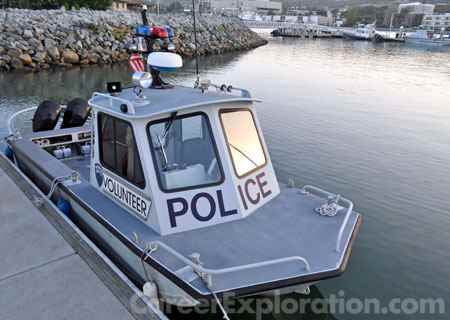
Maritime Law Enforcement Major
This is a program focusing on the application of law enforcement and security principles and procedures to the marine environment.
Includes instruction in criminal and nautical law, nautical terminology, seamanship and vessel operation, vessel maintenance, navigation and navigation systems, meteorology, vessel and passenger safety, radar and remote sensing systems, communications systems, vessel pursuit and stop, boarding and arrest techniques, investigative and evidence techniques, weaponry and applications to specific situations such as piracy, drug trafficking and smuggling.
What can you do with a major/degree in Maritime Law Enforcement Major?
Maritime Enforcement workers are a force of specialists well-grounded in knowledge and skills pertaining to law enforcement and security duties. As such, members of this rating can be expected to be assigned difficult duties including conventional maritime law enforcement, anti-terrorism, force security, port security and safety, as well as delivering unit-level instruction in these fields.
Trade Associations and Professional Organizations in Maritime Law Enforcement Major
Professional associations are groups of professionals dedicated to topics in specific fields. Professional associations provide a wealth of online resources, some of which are geared specifically towards students. These organizations typically also host conferences and events, providing great opportunities for learning and networking across your field of interest.
- The Maritime Law Association of the U.S.
- International Association of Law Enforcement Intelligence Analysts
- Fraternal Order of Police
- National Association of Police Organizations
- American Federation of Police and Concerned Citizens
- Infragard
- American Association of Code Enforcement
Publications/Magazines in Maritime Law Enforcement
